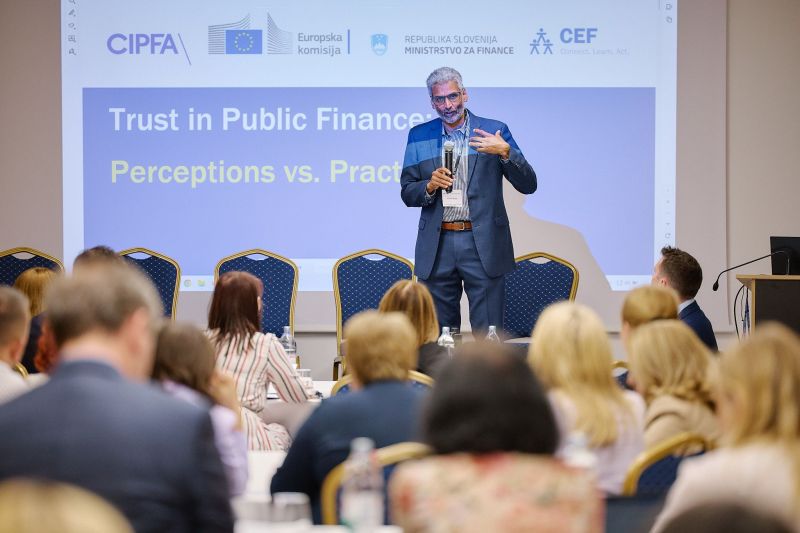Khalid Hamid, CIPFA’s Director of International
What good is a watchdog if no one hears it bark?
Public audit is meant to be a pillar of accountability - the impartial voice protecting resources and ensuring governments act in the public interest. But as trust in institutions frays and public finance grows ever more complex, that role is under strain. Audit is being asked to do more, say more, and matter more - often with the same tools and assumptions that shaped it decades ago.
At our recent Trust in Public Finance: Perceptions vs. Practice conference in Zagreb - hosted by CIPFA and the Center of Excellence in Finance, supported by Slovenia’s Ministry of Finance and the European Commission - one message stood out: trust is not a soft value. It’s a strategic asset. And right now, it’s under pressure.

That pressure hits audit particularly hard. When audit findings don’t influence decisions, shape policy, or resonate with citizens, we must ask: is the audit profession really making a difference?
Traditionally, audit has been a guardian of compliance - verifying that financial rules were followed and public money spent as intended. In simpler times, this may have sufficed. But the public sector isn’t judged by profit, but by outcomes: healthier populations, safer communities, cleaner environments, fairer services. Compliance is just one piece of that puzzle.
Many audit reports remain focused on rule-following rather than results. This narrow focus can miss the bigger picture. Not all non-compliance signals that mistakes have been made - sometimes non-compliance can be a deliberate choice. And by the time audits review those choices, it’s often too late to pivot. Audit today can feel like looking in a rearview mirror in a world where we’re being propelled ever further and faster forward.
More troubling still, many audit insights never truly reach their audience. The language is technical. The timing slow. The framing - often about findings rather than meaning - fails to help decision-makers or the public understand why it matters. Even the most rigorous audit risks being misunderstood, sidelined, or ignored.
But it doesn’t have to be this way. Around the globe, there are encouraging signs. Governments are aligning with international standards, boosting credibility and consistency. Internal auditors are broadening their remit - examining governance and delivery, not just controls. Sustainability, once an afterthought, is now central to many audit agendas. New standards push institutions to assess environmental, social, and governance risks in greater depth.
For audit to fulfil its promise, however, it must evolve beyond formality. Audit can’t be a checkbox exercise - it must become a strategic partner in reform.
This starts with communication. A good audit report isn’t just accurate - it’s accessible. It doesn’t merely expose weaknesses - it supports learning. It involves leadership throughout the process, not just at the conclusion. It frames findings so decision-makers can understand trade-offs, clarify intent, and plan effectively.
We also need to tackle a systemic gap. In the private sector, audit is paired with analysis – professional analysts who interpret, compare, and communicate findings to stakeholders. The public sector often lacks this vital layer, limiting how audit is used and valued.
We must be honest: audit’s impact isn’t neutral. Like any tool, its effect depends on how it’s wielded. When applied with care, clarity, and courage, audit can uncover waste, deter wrongdoing, and build trust. But when misused - weaponised politically or dismissed casually - its power fades.
This is a pivotal moment. As governments confront climate change, digital transformation, and soaring public demand for transparency, the need for credible, intelligent scrutiny is urgent. But scrutiny that fails to connect - that doesn’t inform, guide, or engage - is wasted opportunity.
So, is the audit profession making a difference?
It can. And in many places, it already is. But realising its full potential demands a mindset shift: from reactive oversight to proactive insight; from technical precision to public resonance; from the margins of policy to its very core.
Audit is more than a watchdog. At its best, it’s a compass - guiding us toward better governance, deeper accountability and a more trusted public realm.
